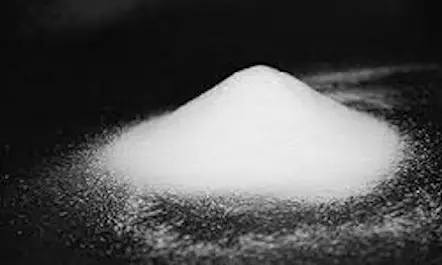IUPAC Name
Methyl L-α-aspartyl-L-phenylalaninate
Cas Number
22839-47-0
HS Code
2924.29.95
Formula
C14H18N2O5
Industry
Food Ingredients
Appearance
White Crystalline Powder
Common Names
E951
Packaging
25 KG Plastic Bags
Brief Overview
Aspartame is an artificial, non-saccharide sweetener used as a sugar substitute in some foods and beverages. In the European Union, it is codified as E951. Aspartame is a methyl ester of the aspartic acid/phenylalanine dipeptide. Aspartame is approximately 200 times sweeter than sucrose or table sugar. Due to this property, even though aspartame produces four kilocalories of energy per gram when metabolized, the quantity of aspartame needed to produce a sweet taste is so small that its caloric contribution is negligible. The taste of aspartame and other artificial sweeteners differs from that of table sugar in the times of onset and how long the sweetness lasts. However, aspartame comes closest to sugar's taste profile among approved artificial sweeteners. The sweetness of aspartame lasts longer than sucrose, so it is often blended with other artificial sweeteners such as acesulfame potassium to produce an overall taste more like sugar. Aspartame can be synthesized from its constituent amino acids, L-phenylalanine and L-aspartate.
Manufacturing Process
Aspartame is typically manufactured from phenylalanine, at which methanol is added, followed by slightly modified aspartic acid. The aspartic acid is modified to prevent unwanted further reactions.
Food Industry
Aspartame is widely used as an artificial sweetener in food and beverage products such as soft drinks, fruit juices, and fruit syrup. It is also used in various dairy products, such as yogurt, frozen novelties, and desserts. It is also used in confectionery products such as chewing gum, sweets, pastilles, mints, chocolate, gum, and jellies.
Pharmaceutical Industry
Aspartame is also used as an artificial sweetener in tablets, sugar-free syrup, powdered mixes, and effervescent tablets.
